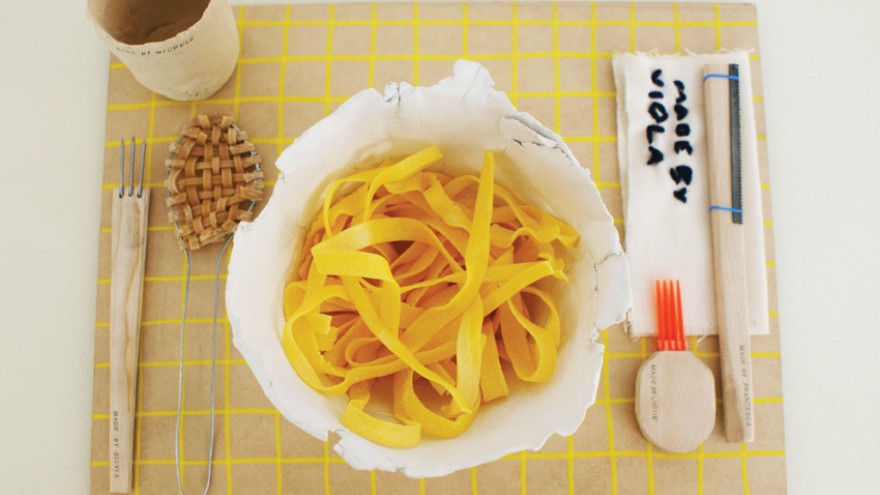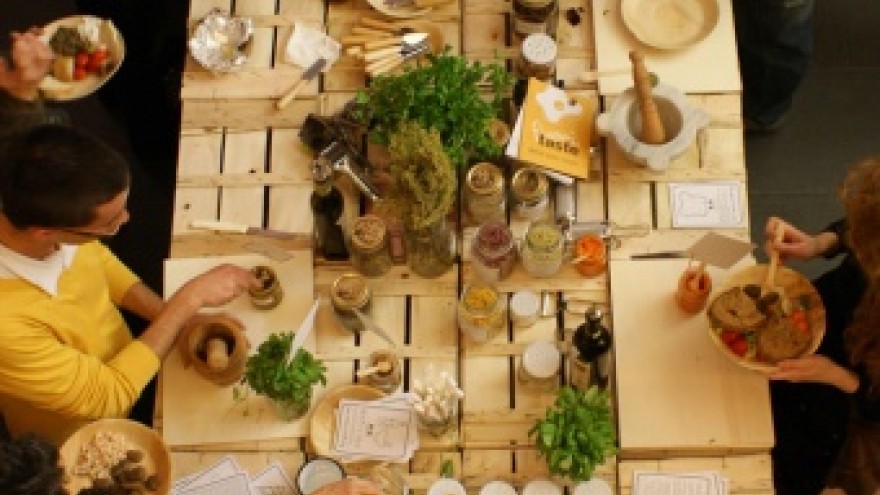From the Series
Arabeschi di Latte is a group of Italian women designers with a passion for conviviality, founded by Francesca Sarti in 2001. The group's mission is to experiment with new design concepts that relate to food, and its fascinating power to create situations and relationships.
Mediterranean hospitality is a key factor in this work and is enlivened by Italian culture. Food is seen as a tool that leads to opportunities for getting together to share a simple meal. “Food is an everyday necessity, but at the same time it has a lot of things to say, a lot of stories to tell about the people behind the products,” Sarti told LS:N Global. “It’s a big word.”
In the past 10 years, Arabeschi di Latte has created and exhibited a variety of eating events, special dinners, pop-up cafes, workshops, branding, product design, performance and exhibition design throughout Europe. Projects have included such eccentricities as insisting people feed each other with giant spoons, creating bespoke tea ceremonies, hanging knapsacks from trees, opening a bitter – as opposed to sweet – shop, erupting a giant polenta volcano with melted cheese, getting art gallery patrons to make their own gnocchi, and a wholly biodegradable compost dinner.
A lot of their work is also simple, celebrating the humble joys of everyday experiences with a smack of nostalgia for times past. During their "Sunday Passions", for instance, Arabeschi di Latte entertains guests in an extensive kitchen space, and celebrates the passion and basic aesthetics of nostalgic hobbies. Guests can savour several varieties of bread, freshly made pasta and preserves in a nod to activities such as homemade preserving, crochet and needlework, vegetable growing, and homemade pasta and bread making.
“We are part of a generation that still had certain rituals in childhood and slowly lost them, growing up,” describes Sarti. “Reviving these rituals is one of our most important themes. It’s not an invention; it’s very basic. It’s about recovering good habits from the past.”









